#The Middle Ages
Text
behind every hot girl there is a deep history of obsessing over a particular time period or historical figure
#hot girls love history#history#joan of arc#marie antoinette#catherine the great#princess diana#cleopatra#women in history#history major#hot girl shit#random#period drama#jane austen#the middle ages#the renaissance#world history
1K notes
·
View notes
Text
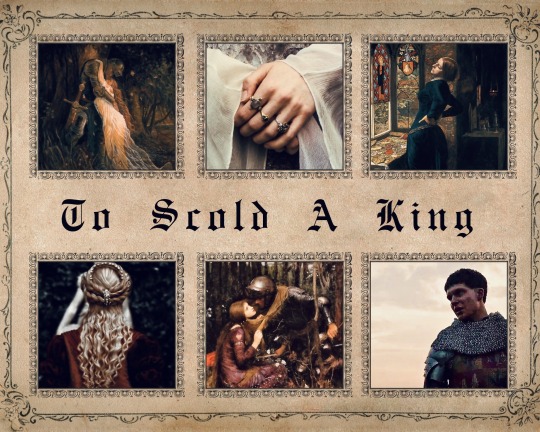
Twenty Songs Challenge, written after being so lovingly inducted by the powerhouse that is sweet Mey, @the-ugly-swan . Challenge being to choose twenty favorited songs and write one shots based off of them with any pairing or fandom of my choosing. Being a weirdo and a little burned out in my own created universes beyond the fics already in works, I chose what currently inspired me most, obscure as it is.
Pairing: Henry “Hotspur” Percy and Lady “Kate” Mortimer Percy -early 15th century
Fandom: RPF, Shakespeare? Tom Glynn-Carney’s 5 magnificent minutes of a performance as Hotspur in <The King 2019> the armor alone was amply inspiring. The Hollow Crown fans feel free to imagine whoever, as you like. I love this historical pairing in about any iteration and the plot is drawn from both Shakespeare’s play and real history, the timeline, plot and politics being pretty self explanatory through the incorporated dialogue. NOTE- wordplay ahead with “cur” and “Kerr”, the latter being a Scottish clan holding great enmity with the Percy Family and charged with holding the Scottish side of the border. Also I kept Lady Percy’s name as “Kate” even though it was technically Elizabeth in the records.
Dynamic: a rough northern lord and his too good for him lady -a lady who has, through years of an arranged marriage gone horribly well, come to find his homespun gallantry and blunt ways more than a little intoxicating when knelt before her in amused deference. She could almost find it in herself to be gentle with him -if he hadn’t just started a rebellion whilst away from her at the Capitol.
Dedicated to my wifey @prompted-wordsmith who I did proselytize into the Percy cult one fevered evening with inestimable results, including her contribution of a few choice lines herein.
🕯As it Was ~ Hozier
“There is a roadway, muddy and foxgloved
Never I'd had life enough
My heart is screaming out
And in a few days I would be there, love
Whatever here that's left of me is yours just as it was”
Warnings: 18+ to be safe. a small amount of sexual content, flirtations, a husband and wife touching in public, verbal sparring and talk of making children and use of the word “bred”, swearing, use of the words “cock” and “cunt.”

The sound of hooves in the courtyard rouses Kate from her anxious stupor by the hearth, toilsome grain list forgotten on her lap. The scroll swishes to the floor at her abrupt standing, wafting out of her path as she rushes to the window.
First the clatter of a single, foremost, over-eager rider, followed at a lag by his retinue, skilled riders all and armored as befits the guard of a nobleman. They make such a clatter in the yard when they come in after him. Some petty part of her briefly considers the tactic of staying here in their chambers in protest, a quiet sign of disapproval with his errand, of discontent with his brusque leave taking two weeks agone.
Her Harry would find her anyway, and like it better that she were in their chambers. He would like it well she were so near the bed and like it ill she slighted him in her dutiful welcome -but he would not speak of that. Not one for speaking much, her husband, not on matters that plague her these days, weeks, months. Kate might have it out with him in the old way and slap him about and toss cold quips and get from him little more than the same benign aggravation and good humored laughs between, a couple dozen kisses to her neck and a grapple in the sheets.
That is what talk they would undertake were she to stay up here.
It is that lone, eager, forerunning clatter of his horse that speaks to her, speaks for him. Just as his sword and his reputation and his gruff graciousness has spoken well of him across these northern lands, his eagerness to return to her, to outstrip his men in haste to be back from his fool’s errand and into her embrace -it is all the declaration of devotion she may expect from him. It is the truest form, without jape lacing his tone or tonic of lust clouding his confessions.
Harry Hotspur, as fast to return to his wife as he is to meet a fight.
It is love, of the sort she has grown to be grateful for, and it is that and fear of losing it besides, that rushes her out from their chambers and down the polished steps, out to the great hall and past the giant outer doors, cursing a lousy servant or five and ordering a bath and commissioning supper and refreshments as she goes. The torch flames bend from her flight, a whoosh and a shadow stalking Alnwick Castle’s stone passageways until the gray light of evening pours into her sight from the opened great doors. Squires and stable boys clutter her path but they part as she dashes, nay, only a dignified hasten now, out into the courtyard where nearly all of this fool’s troup have dismounted.
There are doffed helms to the Lady Percy, the jangle of chain mail crinkling with bows and scraps of deference all around them, but she sees only him, with mist dripping on his nose and a face too boyish for the insolence he has returned from discharging.
“Kate.” he utters.
Will ever he say her name lazily? She hopes not, for that alone she will endure the unwarranted cheerfulness with which he greets her on this dire occasion. She has heard it said in anger, in jest and in passion, vows and quips, praise and warning. And now in cheerful pleasure as evening mist soaks her gown and the heavy clunk of her husband's footsteps clang ever near her on the paving stones.
“Lord husband.” she greets, hands folded over her freshly healed womb.
His stride falters and he rocks back on his spurred heels, an arms length away, an embrace so tangible she can see his jaw tick from the watering of his mouth. “Lord husband is it?” he repeats thoughtfully, eyes drifting down to the paving stones for a brief moment as if to recollect some forgotten crime, they flick up soon and in them is jesting scrutiny, “My lady wife rushed all this way, down five corridors and a furlong of Keep only to greet me thus?”
Did her rising breath betray her eagerness? Could he see her in the hall despite his business dismounting?
“Your cheeks are red.” he shows her mercy, some form of it. His form. “But -Lord husband, it is, nevertheless?”
“Unless you would prefer ought else?” she inquires, he had once thought this smile quite chilling, he had admitted after their first babe, now he finds it rousing, he has admitted after their third.
“If it please you.” his shifting stance is noisy, his tabard and sword and still clutched helm a racket of accouterments in the pattering rain.
“I have any number to offer,” she concedes, stepping nearer, a lady’s step, covering one third of the ground between them that he might vanquish in a single stride. Still, he waits. “Knucklehead.” she whispers, her breath a fog and her insult as lost as vapor in the ears of his watching men, her bearing alone must satisfy their curiosity, as must his growing smirk and rising color, “Jackenape.” Another step until each little scar on his face is visible and the little canyons each raindrop make of them. She saw his finger twitching where it grasped his visor “Cur.”
There was the slightest flinch between his brows at that, a furrow that smoothed as his mirthful lips flattened out. “Careful now, lady wife, with words like Kerr* thrown about, my men might think you presumptuous, their lady gone and married to some other, a Scottish laird at that. So sure of my death already, sweet Kate, that you must speak of Kerrs in mine own yard? Ha, ‘pon my word you are qu-“
“Hush!” Her hand, fresh warmed as it was by recent hearthside and rich velvets pressed frimly to his lips, a tingle shooting straight to her toes at touching him at last. He was silent then, only the puff of breath against her fast chilling fingertips. “Tease me not so,” she begged, her own mirth gone out in her eyes, her arch look turned to grief, “not when you are just returned from an errand all but ensuring such an end. It is too cruel, even of you. Handle me kindly, Percy, as you always have, in words this time, if not in embrace.”
He seemed to ponder this before raising that hand not occupied with his helm, clumsy and clad in gauntlet as it was, to her wrist, wrapping the chilled and layered steel round her pale flesh and gently tugging her hand from his lips, only so far as to press it to his cheek instead, their audience of men at arms unheeded. “I betook myself to London,” he enunciated, as if it were their first night all over again and his thick borderland drawl too strong for her courtly ears to decipher, “to remind a king of his debts.”
“And tell me!” she cried fiercely, a choked, barely quieted protest as her hands dug into the wet leather of his jerkin, wrist twisted from the steel grasp, “What errand is that but a fool’s? Have you no fear at all left in this bruised carcass? Do I patch up an animated corpse time and again from your wars only for it never to have soul and feeling and wisdom in it? Do I, Harry? Gone to remind a king? How do you dare such?”
“It is he who has dared too much!” he cried back, loudly where her’s had been choked, a ringing and rebauld defense, worthy of a man who would chastise his monarch in full view of council. “First his debts, and now my son’s land! We did not make children so as to watch like blithe cowards as their birthright is bequeathed out from under our feet -piecemeal!- to a courtly cunt whose only recommendation is his alacrity to pucker and bow.”
Kate glanced about her at the men making show of industry, piddling at harnesses and armaments, walking horses in circles. Her husband's words could be no worse than what he had said to the King’s own face, anyone without stomach to become a rebel would have stayed behind in the Capitol, sensing dissension brewing. Lady Percy could perceive none missing from his number. So, a war it was to be, then.
“So, a new generation of Percys is to play at kingmaking.” she summarized.
“We make no boast of it.” Harry protested in turn.
“No,” said she, “why would you with how poorly your last choice has served you?”
That caused a start from him, a step forward that was neither gallant nor eager but angry as man to man. Kate, still with hands fisted in the crooks of his armor, stepped with him, backwards to his hall. “It is your brother with the better claim.” he showed his plan at last, a slow and conniving admission, one not common for his brash ways and straightforward mind.
Kate gasped at the implication. “Edmund?”
“He was proper heir, all along.”
“Your father-“ she chose her wording carefully, “-did not agree.”
“My father’s preference is not law.”
“It is mistaken for such, often.” Kate smirked in reply. “And Edmund is not suited-“
“-Edmund is not the turd now stealing from his vassals!” her Harry rejoined, his helmet pressed to her chest, “Edmund will do.” he reiterated once more.
Kate stared at his temper, the signs of it in his flaring nose and his wild eyes, the cure was between her thighs but watching mist drops fall from unblinking lashes was sweet prelude indeed. “Edmund,” she replied quietly and in a manner to be heeded, “is not willing or suited, he prefers instead to listen to welsh bards and lay upon the lap of his savage wife.”
Her Harry rolled his eyes at her truth, an admission, or the closest to one, she would ever receive. As if battling some great inner turmoil she watched him purse his lips and heave out a sigh before in a sudden movement the helm was tossed to the ground -much to the scramble and reaction of a half a dozen squires who ran to pick it up from its puddle- and suddenly steel hands were upon her hips, tugging her near to him even as she shied away, her face turned in a pantomime of demureness. “Strange,” he said and his tone suggested he still pondered her report of her brother's amorous preoccupations, “-and her lap so less Devine than mine own wife’s.”
“Then why do you haste from it so often?” she whined, delivering a smack against his belted tabard, right where the lions paraded across his right breast.
“Only a man dying of thirst appreciates that water has a flavor.” he reasoned and Kate allowed the open mouthed kisses that crept down her neck, her face turned stubbornly still to the south wall. The blacksmith's roof will be in need of new thatching soon, before spring. Before war.
She feels stubble against her tender skin, bracketing those pretty lips she once derided him for. No warrior ought to have lips like that, it was not seemly, not when maidens were denied such richness, such fullness, such rosy hue. But there is roughness about his lips and on his jaw as it tucks into the juncture at her shoulder, that show of clavicle her dress allows drawing him in like a siren’s song. He must’ve rode hard the entire way, no inns or refreshment, no shaving or baths, straight to her as from a battlefield. The King’s city is just as loathsome as any field of carnage, but he went to free her brother, to get a ransom, to reclaim their stolen land, to remind a king.
He did it for her, and the babes she gave him.
Kate turns her face from the blacksmith's thatch and raises her hand to his face, tenderly stroking the three days' beard that's grown as he's been on the road, riding hard to get to her. They have backed nearly to the hall’s mouth, the drip of rain off the gutter patters behind her on the threshold, Kate knows he can smell supper and hear the clatter of their children racing to meet him on still chubby legs. How different is the love of home, man to woman, Harry would sooner fight for it and she would cower within. Her thumb swipes at the raindrops making farce of tears upon his cheek.
"Princess," he breathes against her palm as he crushes her into his chest, still half armored and agonized for it as he cannot feel her softness with the cuirass, the leather, the chainmail. There are curves and bosoms and soft flesh he knows too well just on the other side of this awful barrier.
Princess will be her title if his treason succeeds, if her brother wears that cursed crown. “Princess”. It sours her mouth, but it is kind of him to wish it for her.
"You will come back, Harry.” she commands of him, she declares the outcome of this brewing war, “Soaked in the blood of feckless scum, you will come back and put another babe in me. A little prince or princess," she hisses in his ear, and she can tell he freezes at that, her concession to his treason, still as stone in his metal casings.
His eyes are ever so blue as they search hers.
"So I forbid any recklessness, my Lord Husband. Because I want this - " and her hand slips beneath his jerkin and the hem of mail to squeeze his cockstand most assuredly, as assuredly as she was that he would be sporting one for her, gripping it as one might grasp a chalice of wine during a toast "- and the rest of you, in one piece." Harry slumps against her shoulder, panting into the chilled hair and too heavy for her little frame. "Or so help me God." she intones, sharper than any steel he wields. "Swear it, Harry." She gives him another punishing squeeze, and he groans, agonized, as his mouth meets with the softness of her bound bosom, his knees the hardness of the stone cobbles. If she hadn't promised a use for his cock, he'd think she was liable to geld him herself at his presumption to seat and unseat a king, but now that he is out of her grip, for a moment, and looks up at her with such longing he fears his soul has left his chest for hers.
"So help me God." he agrees, it is in providence’s hands, after all, and in Kate’s clasped one’s atop his head.
“Fool.” she says once more as she bends over him, gently pressing a hand to the back of his head, pressing his face to her belly and her chilled fingers to his sopping hair, “It is not my brother these men fight for, nor for me. Not when it is you that calls them to it.”
“For what then?” He mumbles into her womb, hands heavy on her hips, the courtyard’s occupants dispersed into the shadows of the eaves, but a couple dozen peering eyes twinkle towards them in the twilight’s gloom.
“How often have I heard it said here, in this very courtyard.” Kate scoffs, observing the strength knelt so adoringly before her, “Have I dreamed each cry of ‘no prince save he be a Percy?’ Ha, to think they fight for a Mortimer, indeed. Ha!”
Harry staggers to his feet at this poke, it is, as are so many of his Kate’s wounds, half torment, half praise. His blood pounds with the elixir of her acknowledgment of his capability. “It is well then, Kate Mortimer,” he recites, daring now to put his lips very near her own, to nuzzle his strong nose with her hawkish one, to tip a chin and bat an eyelash against her wet cheek, “it is well that you are Percy now yourself, through and through, wed-“ his lips meet hers in a brush she chases after, “-and bred.”
🕯🕯🕯🕯🕯🕯🕯🕯🕯🕯🕯🕯🕯🕯🕯
Hope all five of you who read that enjoyed it. 😆 I know it’s a fragment but as I’m nothing but hyper fixated when some interests resurrects in me, I’ll probably be back with more of them. Drop a note below if you’d like to be on a taglist for such developments.
#rpf#Shakespeare fanfiction#Shakespeare characters#but also#the middle ages#medieval#medieval history#the hollow crown#Kate Percy#Kate Mortimer#edmund mortimer#Henry Hotspur Percy#Harry Hotspur Percy#war of the roses#henry percy#Richard ii#gonna go ahead and tag this as#tom glynn carney#as he was faceclaim#the king 2019#Tom Glynn Carney Fanfiction#aegon ii targaryen#aegon targaryen x reader#northumbria#joe armstrong#michelle dockery#period drama
37 notes
·
View notes
Photo



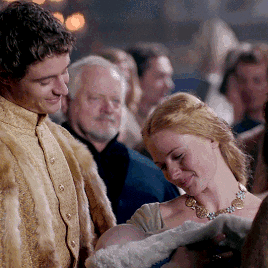

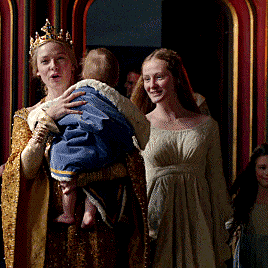

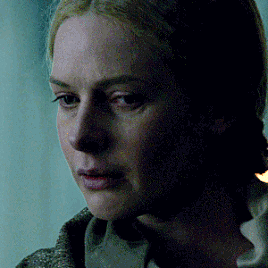
On this day in history, 8th of June 1492, Elizabeth Woodville, queen consort of Edward IV, died at Bermondsey Abbey aged about 55.
The cause of her death is not known, it is commonly suggested however that her health was failing in the last year since she made her will on the 10th of April 1492.
«Except for brief excursions, Elizabeth Wydeville spent the rest of her life in Bermondsey convent. At the age of fifty, she had retreated from the swirling, murderous world of court politics. Experience had taught her the futility of vanity and the imperative of faith, a conclusion supported by her lifelong piety…A bucolic retreat with extensive gardens, Bermondsey convent had long harboured royal guests seeking shelter from the outside world. The current abbot, John de Marlow, had officiated as a Deacon at the funeral of Edward IV and would witness Elizabeth’s will two months before her death.
The funeral procession to Windsor Castle, where Elizabeth Wydeville was buried in St George’s Chapel as requested beside her beloved husband, Edward IV, could not have contrasted more starkly with the elaborate processions of her queenly days. The scanty attendance and truncated funeral rites paled beside the elaborate ceremonies at the reburial of Richard, Duke of York – and even the funeral rites for her daughter Mary in 1482. The shabby hearse, the few mourners, the inferior tapers and the slight attention paid by church authorities discomforted the scribe who recorded the events» - “Elizabeth. England’s Slandered Queen” by Arlene Okerlund
#historyedit#history#on this day in history#elizabeth woodville#15th century#the wars of the roses#wotr#medieval#the middle ages#the white queen#twqedit#perioddramaedit#rebecca ferguson#my edit
536 notes
·
View notes
Text
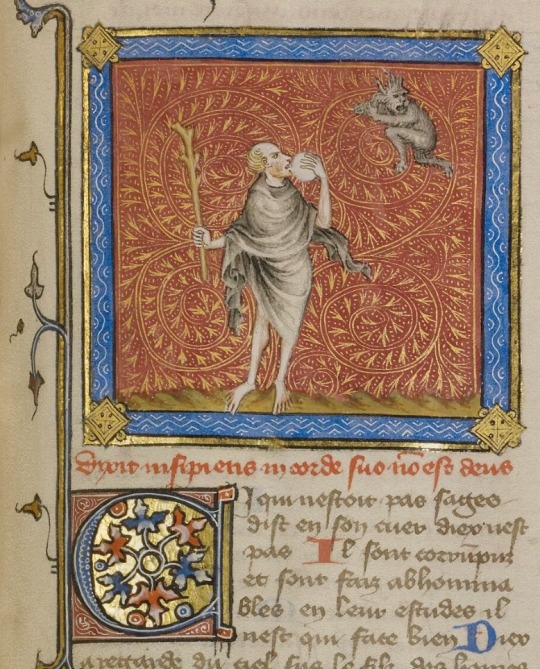
The Fool and the Demon, leaf from a Psalter by the Maître de Jean de Mandeville (France, c 1360), fol. 284
The legend reads: "dixit insipiens in corde suo non est deus" ("the fool says in his heart 'There is no God.'") (Psalm 52)
In a miniature prefacing Psalm 52, the illuminator represents the poem's imagery literally. The "fool" of the text appears here as the lunatic figure familiar during the Middle Ages: shoeless, wearing rags, and carrying a club. He holds an unidentifiable object, perhaps a stone, to his mouth; from this he can draw no nourishment, a visual analogy to the denial of God's existence.
In the medieval period, lunacy was seen as a punishment inflicted by the devil. In the upper right corner of the miniature, a small demon crouches before the swirling gold decorative patterns, either the cause of the fool's lunacy or, perhaps, the agent inspiring the fool's denial.
J Paul Getty Museum, Malibu, California. Ms. 1, v1 (84.MA.40.1)
The fools adorn Psalters, Books of Hours, and romances of the thirteenth, fourteenth, and fifteenth centuries. They teem in the initials, miniatures, and illuminated margins of manuscripts. Specific visual features identify the fools as such and describe their nature. With extensive knowledge of ancient, biblical, patristic, and historical sources on madness, dance, and music, with dazing originality, illuminators invested great care in producing these figures of the mundus inversus and in the transmission of the scholar model they personified.
In the medieval literature, madness means nonsense and the insipiens or the fol is consistently defined in relation to wisdom. This madness is twofold, positive and negative, natural and artificial, and concerns both the soul and the body. King David conveys in this literary and iconographic genre visual and moral power to the fool’s figure, who becomes related to music, dance, rhythm, and harmony. Thus the initial letter of Psalm 52 (53) “Dixit insipiens” opposes in new ways the moral virtue of David to the fool’s sin and vice.
The madness of religious inversion is also that of the Fête des Fous. This ritual organized by the Church reverses the church hierarchy, parodies the church service thorugh dances, games, banquets, the Office de l'Âne, and the Évêque des Fous. The figure of the fool is ambiguous also in terms of political power: it can both condemn and authorize inversion and staged disorder.
At the end of the Middle Ages the jesters dance farandoles or the moresca in groups. They also participate in danses macabres. Always ambivalent, they are major figures of court festivities and reveal and relieve through laughter and macabre social tensions and the imagined nature of life and death themselves.
[Robert Scott Horton]
* * * *
“The secret of the successful fool is that he's no fool at all.”
― Isaac Asimov
#Robert Scott Horton#The Middle Ages#jsesters dance#danses macabres#medievel literature#quotes#Isaac Asimov#jester#fool
15 notes
·
View notes
Text
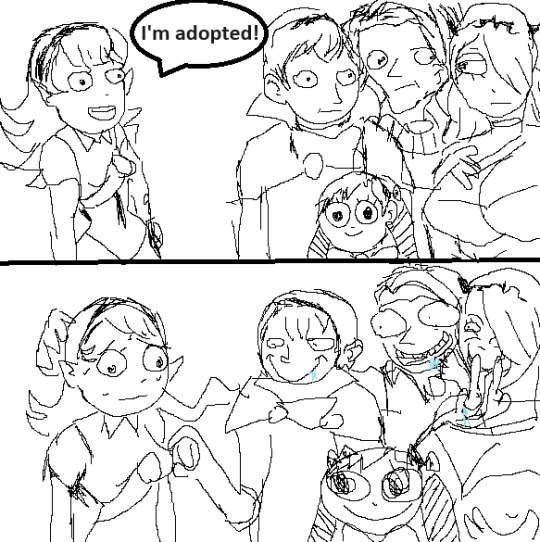
incescts
#fire emblem conquest#fire emblem#corrin#fire emblem fates#camilla fire emblem#xander fire emblem#elise fire emblem#leo fire emblem#adoption#the middle ages#alabama#nohr#comic#fan comic#my art#original art#ms paint art#fan art#parody#parody comic
45 notes
·
View notes
Photo
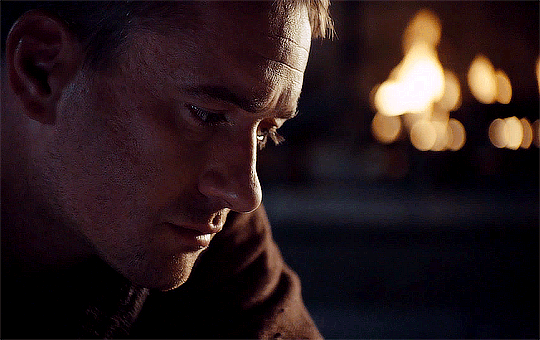

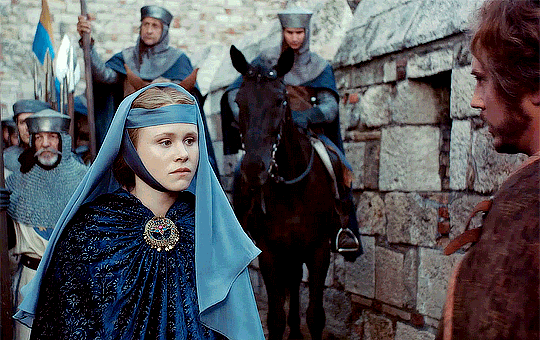



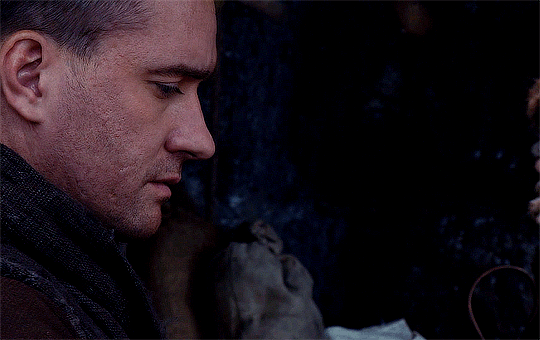
The Pillars of the Earth (2010)
Episode 1
#the pillars of the earth#matthew macfadyen#prior philip#tvgifs#tvedit#tv#tvseries#tv series#perioddrama#period drama#perioddramagifs#perioddramaedit#miniseries#british actors#medieval#medieval drama#tv drama#the middle ages#monk#monks#medieval monks#philip of gwynedd#rufus sewell#tom builder#british all star cast#ken follett
126 notes
·
View notes
Text
"We started discussing mortality rates, that is, of the people who contract the disease, what percentage of the people who are ill will die. At that point in time COVID mortality rates were hovering at about 2% and hospitals were filled to capacity with people who were very, very sick from the disease. [...] On this particular zoom call my friend asked me what mortality rates were during the Black Death. What percentage of people who contracted plague would die from it?
"Best guess?" I said, "around 80%."
"Eighteen percent?!" she said in horror. "There's no way. Society would have collapsed!"
And then I had to tell her that no, I had not said 18%, what I had said was 80%. There was utter silence on the zoom call as my friend absorbed this piece of information.
"So," another friend asked, "what percentage of the population actually died?"
"For Europe," I said, "estimates are that at least 50% of the population was wiped out."
And in that moment the horror of the Black Death struck me harder than it ever had before.
[...] And as far as that data I gave my friends on that zoom call in March, 2020? I was probably underestimating. Mortality rates during the Black Death were more likely closer to 82% or 85% and the overall impact on the population was probably more severe, with something like 60% or in some places as much as 70% of the population wiped out.
And while my information was generally correct for Europe, one new piece of information that we're going to explore more in-depth was this: it now seems clear that the Black Death was in-fact a global pandemic, extending much further into Africa and the Middle East and circulating through much more of Asia than we once believed."
- Dorsey Armstrong, The Black Death: New Lessons from Recent Research
13 notes
·
View notes
Text
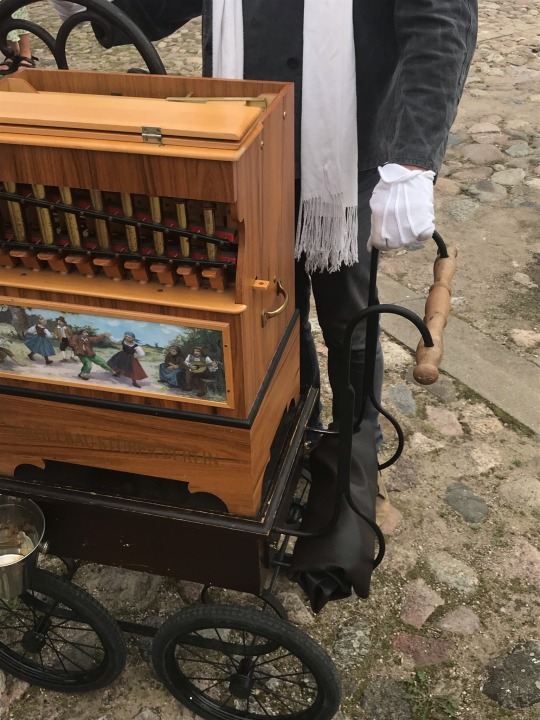





a latvian city’s 800th year jubilee celebration
there was an archery corner!!
#personal#hiyutekivigil#photography#potterywheel#pottery#historic#historical fashion#latvia#the middle ages#middle ages#knight#historic site#bow and arrow#archery#history
22 notes
·
View notes
Text
1477, Stawford.
It's a peaceful day like all others in the small village of Stawford. The villagers live their life and do their jobs. So also Ada Cackle and Hecate Hardbroom. Yet everything changes when their life gets turned upside down from a life treatning accusation...
Suddenly the entire village is in turmoil and strange things start happening. Nobody knows what's happening and nobody can be trusted. Will peace ever return to Stawford?
~~
I have posted the first two chapters of this new fanfic, I hope to post part three soon.
#ada cackle#hecate hardbroom#the worst witch 2017#tww17#agatha cackle#the worst witch#ada x hecate#hackle#tww2017#marigold mould#mister daisy#egbert helibore#medival times#the Middle ages#chess#story#angst#heavy angst#hurt#hurt no comfort#mildred hubble#maud spellbody#enid nightshade#miss gullet
10 notes
·
View notes
Text
Say what you want about medieval "science" but one thing you can't refute is that they had some really interesting ideas about subjective topics like time
10 notes
·
View notes
Text
Ultimate Decades Challenge: 1420-1430 The final decade of the Brookers...

* TW: This post contains a plotline that includes babies and mothers who died during childbirth.
The curse of the heir mums dying young has finally, irrevocably changed this challenge. Felicity Brooker, the wife of Leif Brooker, did not pass her roll into Young Adulthood in 1423, and left behind a single, surviving child - a girl, named Olive. Olive, so far, has survived against all odds and can carry on the bloodline of the Brookers. However, her husband will become the new heir and will bring with him, a new name.
Comment below if you have any suggestions for the new family name!
Marriages [3]
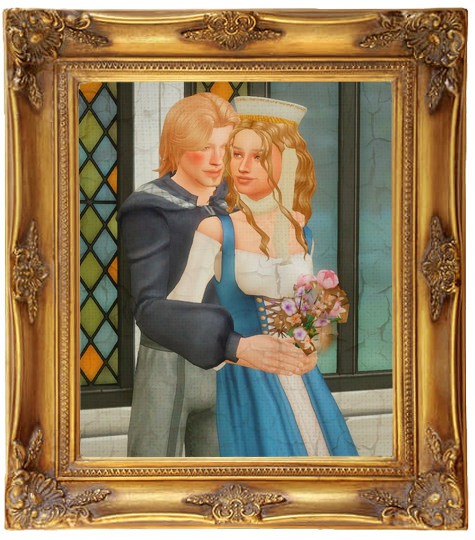
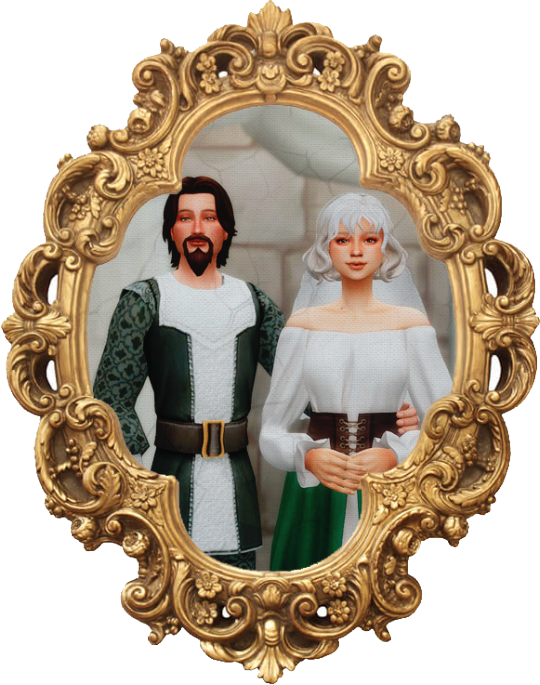
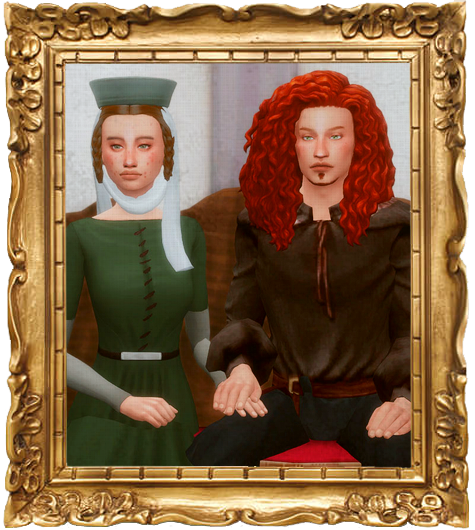
1421 - Henry and Petra Chapman
1422 - Leif and Felicity Brooker
1425 - Callum and Marigold Armstrong
Births [8]
1420 - Joyce Montague
1421 - Eira Everett
1423 - Lothar Montague, Olive Brooker
1424 - Rachel and Joy Everett
1425 - Agnes Everett
1428 - Ricard Everett
Deaths [9]
1420 - Eva Clifford (Dysentery)
1421 - Petrus de Burgh (Malaria)
1423 - Petra Shaw (Syphilis), Felicity Brooker (Tuberculosis)
1425 - Lucy Brooker (Heart attack)
1426 - Marigold Brooker (Hypothermia)
1427 - Colette Clifford (Pneumonia)
1428 - Galwin Bigod (Liver failure), Anika Shaw (Exhaustion)
* Babies that never were [3]: Cassian Armstrong, Roger Chapman, Crispin Everett
Family Tree

Gameplay



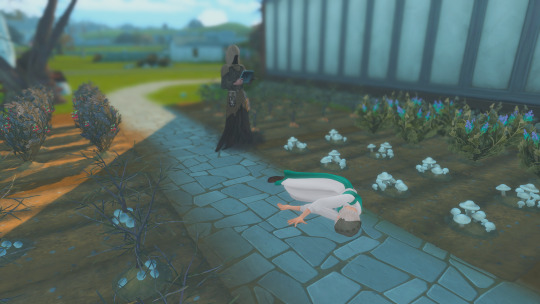
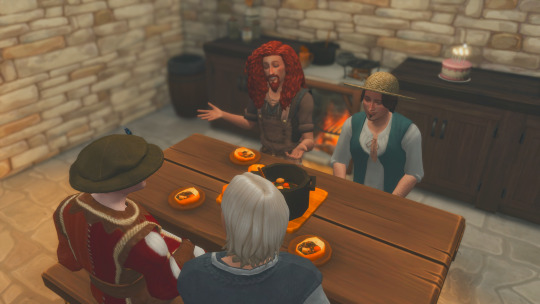
#ultimate decades challenge#medieval sims#the middle ages#the middle ages sims#sims medieval#decades challenge#sims 4 history challenge#history challenge#sims 4 historical#decades legacy#legacy challenge#1400s#1400s legacy challenge#100 year war#war of roses#sims 4 challenge#sims 4 ultimate decades challenge#sims 4 gameplay#sims 4 romances#sims 4 family tree#sims 4 lets play#ts4#the sims 4 cc#the sims 4 mods#the sims 4 maxis match#maxis match cc
9 notes
·
View notes
Text
European Medieval Clothing and Accs I Would Like Made into Sims 4 CC
Modding is much easier than cc creation. Wish I had the patience.
I mean, the waist-length or floor-length head pieces must be a goddamn hassle in of themselves!


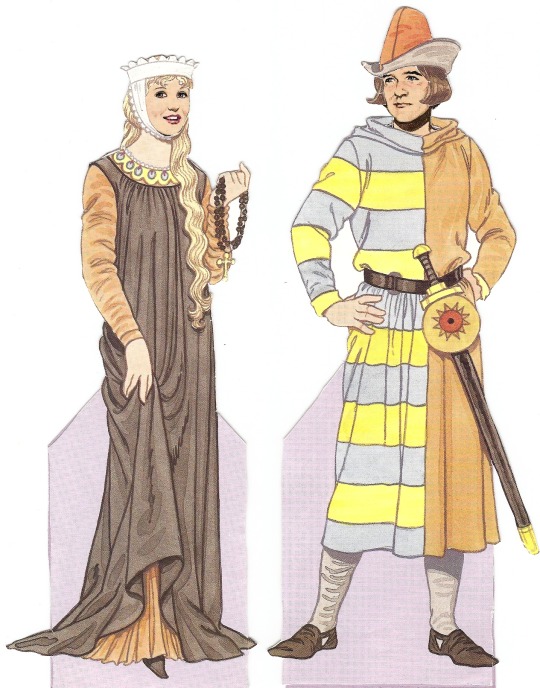



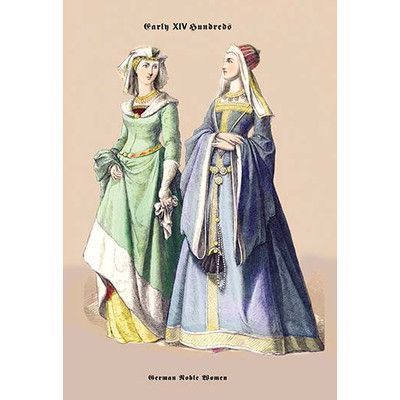
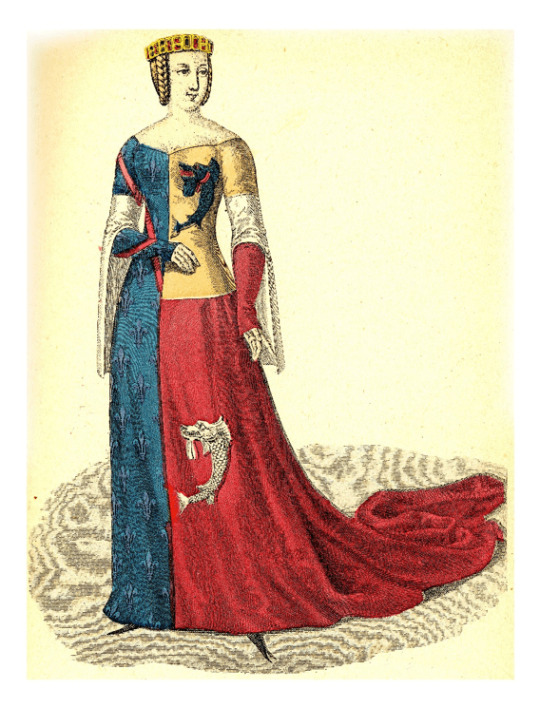


A few of these is later in the period, toward the early Renaissance. The official end of the middle ages is negligible, until maybe Henry the VIII Tudor
#sims 4 medieval#sims 4#sims medieval#the sims 4#medieval clothing#medieval europe#middle ages#the middle ages#sims 4 cc suggestions#not twilight
74 notes
·
View notes
Text
“No matter which way I looked at it and no matter how much I turned the matter over in my mind, I could find no evidence from my own experience to bear out such a negative view of female nature and habits. Even so, given that I could scarcely find a moral work by any author which didn't devote some chapter or paragraph to attacking the female sex, I had to accept their unfavourable opinion of women since it was unlikely that so many learned men, who seemed to be endowed with such great intelligence and insight into all things, could possible have lied on so many different occasions”
CHRISTINE DE PISAN, The Book of the City of Ladies
#late medieval#medieval history#history#middle ages#15th century#14th century#feminism#the middle ages#1400s#1450s#medieval queens#book quote
50 notes
·
View notes
Photo
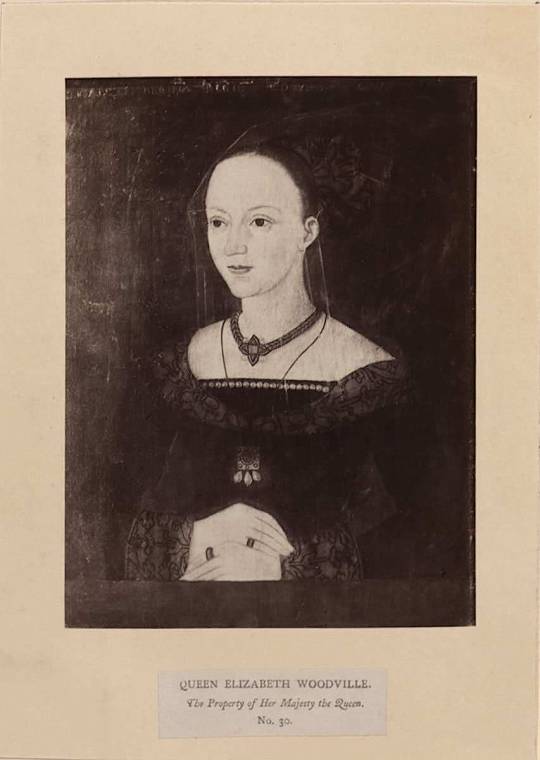
Elizabeth Woodville, Queen of England, c. 1850-1900 (Royal Collection Trust)
#historyedit#history#elizabeth woodville#15th century#the wars of the roses#wotr#medieval#the middle ages#art#portrait#kings and queens#queens#my edit
102 notes
·
View notes
Text
What should I have in my assassin's bureau?
Most Bureau's function as news post and informational military base, which means you can live there. It can be a place to store weapons, food, drink and waters/wines (not to dine on but medicines and also flame lighting materials), as well as other medicines, bandages and cots for sleeping and or blanket rolls for sleeping.
A List of Needs:
Thread, twine, string, flax, needles
Cloth, bandages, sheets, linens
Glues, pitch, nap (a type of black pitch), saps, salves, ointments
Foods, nonperishables (rare), bread, cheese, wines/liamints (fruit juices)
Candles, wax, tonement (for sealing wax, clays, pottery), pottery bake (cornstarch, baking soda (medly), flour, meal
Bed rolls / blankets / mats / cots
Wood, firepots, pits, snap (kindling), fax (fat for burning/oil), and Fax is a templar word.
Fishing net / fishing cap. You could take an old shirt, and cutting small holes in it would filter water, you could "dress" the shirt onto two poles and it would be propped up in a place to let water filter through it. Or people would take a longer sleeve shirt after dressing the two poles and tie the arms together to make a net, and fish would be gathered from inside the shirt they swam into.
Brooms / rock salt for floor (kept bugs and pests at a mini), and sometimes people knew how to weave a floor mat from twine or grasses. (Not pretty things)
Cooking oil from foods gathered for lamp oil and candle making. Lasted anywhere between 35 mins to 3 hours depending how it was made. People would take red wine, and mix it with the oils, and it would last over a period of hours if the flax wix or wood wick was long enough. Only noble people had white wines.
Most bureaus are brave enough to post the assassin logo somewhere on the or about the property. In some times past, it was Illegal to have the insignia on the wall, door or roof or sign, in front or around the side of the buildiing or in the back. Bureaus then resorted to the use of the Jerusalem Cross in order to signify they were good people of the mark. Many also took to create a cross on their robe or uniform. Usually a red, or white emblem with yellow or black trim and some white.
Pope Clement III basically told bureau's they could not post signage of any logo or establishment, or they would be fined money, he feared "briganides" moving against him. This lasted until the middle of the 1200's, and in the north did new bureau's start to post signage out-front and also on their roof.
It is important to note that early bureaus were modeled after Monasteries. The idea of a home, peace, prayer and help in the monastery was greatly admired by early Assassins. If you study this article, you will see that this is true:
Rule of Saint Benedict - Wikipedia
It is also clear up from Pope Clement III's death the Catholic Church instigated most of the wars of the lands until and past Pope Gregory's IX rule.
Pope Gregory IX - Wikipedia
#A history of the bureau#nothing is true?#fanbased#send asks#submit stuff#assassinscreed#codex assassin#history#wars#the middle ages#the dark ages
3 notes
·
View notes
Text
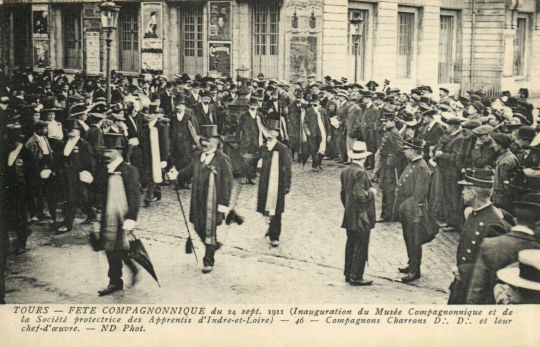
1911 compagnonnage (French guild system from the Middle Ages) festival in Tous, Touraine region of France
French vintage postcard
#festival#guild#tarjeta#1911#postkaart#touraine#middle#ages#sepia#historic#france#photo#postal#briefkaart#photography#vintage#ephemera#ansichtskarte#old#postcard#french#region#the middle ages#postkarte#tous#compagnonnage#system#carte postale
2 notes
·
View notes